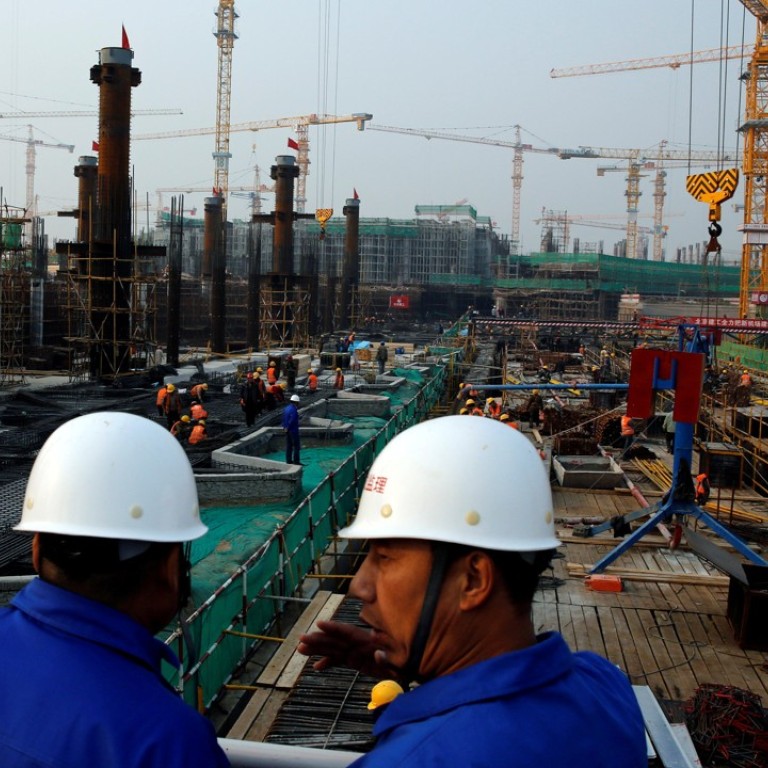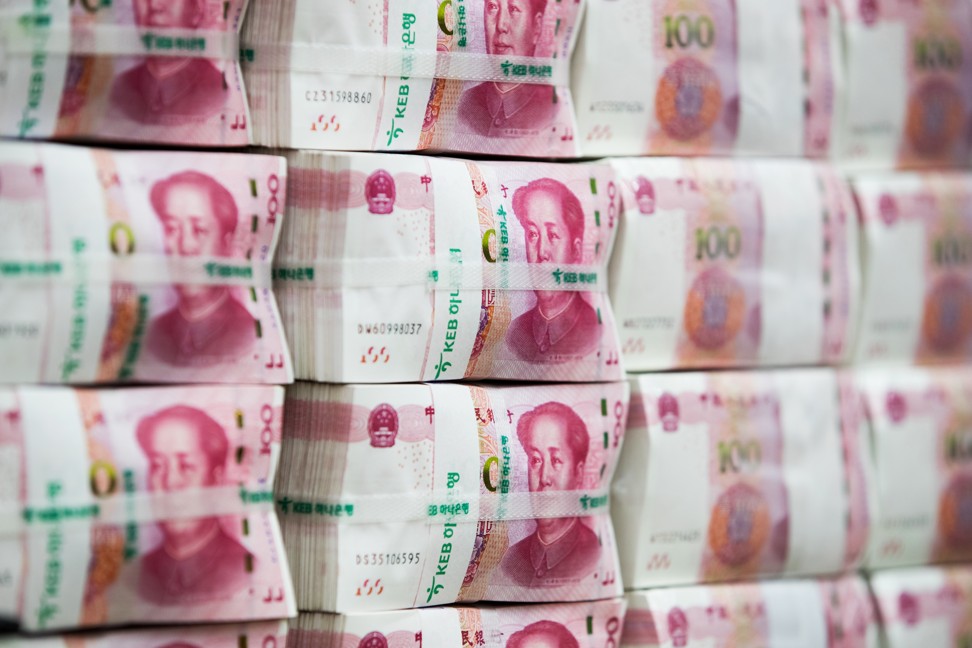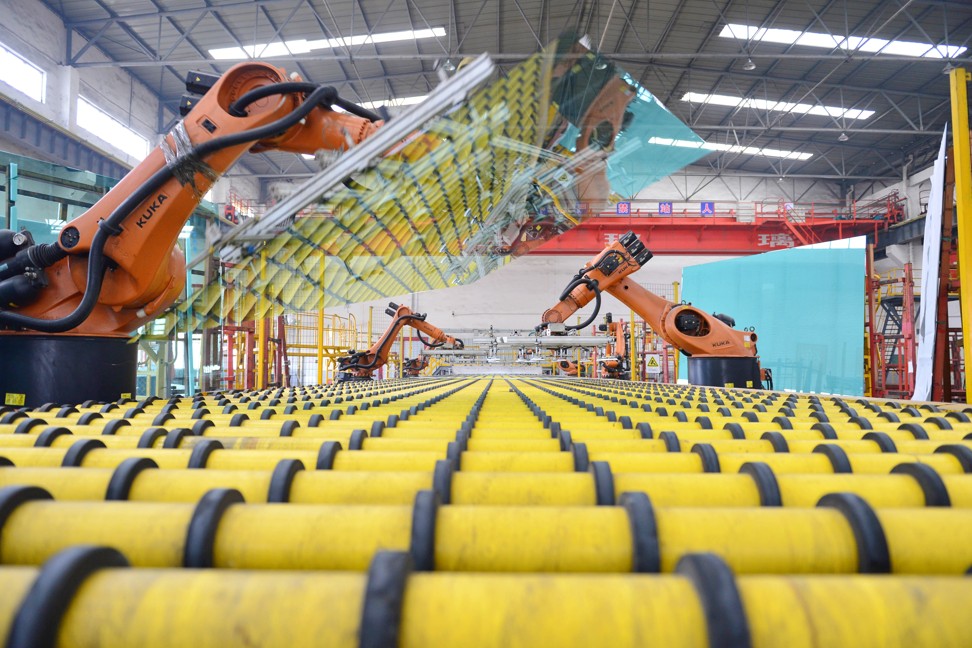
China’s economy expands by 6.9pc in 2017, ending six years of slowing growth
Uptick likely to give President Xi Jinping fresh confidence in growth model as nation on course to become world’s biggest economy within a decade
China’s gross domestic product rose by 6.9 per cent in 2017, reversing a downward growth trend for the first time since 2010 in an indication of strong resilience in the world’s second-largest economy.
In nominal terms, GDP rose by 11.2 per cent to 82.7 trillion yuan (US$12.86 trillion), from 74.4 trillion yuan in 2016, the National Bureau of Statistics said on Thursday.
The strong performance is expected to give Beijing more room to tackle debt and financial risks in 2018, which President Xi Jinping said was a “critical battle” to fight.
Iris Pang, chief Greater China economist at ING, said the possibility of a “crisis” had been largely removed, but Beijing still needed to be cautious as it continued with its process of financial deleveraging.
“The deleveraging is set to eliminate financial risks,” she said. “[But] the authorities should not do it in haste as that could generate new risks,” she said.
The GDP expansion meant China’s economy grew to about two-thirds the size of the United States’ last year, and at the current rate could overtake it within the next decade.
The accelerated growth in 2017 is set to give Xi, the country’s most powerful leader for decades, fresh confidence in Beijing’s growth model.
In the run-up to Thursday’s data release, all of China’s major media outlets, including the Communist Party mouthpiece People’s Daily and Xinhua, carried the same editorial promoting it.
“In the current world, ‘democratic deficit’, ‘governance deficit’ and ‘development trap’ rise one after another, while problems like the rich-poor gap, terrorism and climate change keep emerging,” the article said.
“The international political and economic system dominated by capitalism is flawed and needs deep reform. The new international order is budding. China’s practices offer a new choice to solve common problems facing all humankind.”
At a press conference held in Beijing, the statistics bureau praised Xi – whose political ideology, or “Thought”, was enshrined in the party constitution at the national congress in October – for the economic achievements of the past year.
China’s per capita income rose 9 per cent in 2017 to 25,974 yuan, the bureau said.
John Wong, a fellow at the East Asian Institute under the National University of Singapore, said China had achieved “creditable growth performance” while the government’s efforts to reduce financial risk had also yielded results.
“Even without the recent deleveraging efforts, the size and structure of China’s debt mean it can’t blow up easily, because a lot of it is state-related,” he said.
Raymond Yeung, chief Greater China economist of ANZ Bank, said the current growth momentum was likely to continue in 2018 – with 6.5 per cent growth forecast for the year – but the government would remain focused on reducing debt.
“Risks to the economy, like debt, will be a top priority this year,” he said.
Under “Xiconomics”, Beijing has downplayed GDP growth targets – for decades the principal gauge by which Chinese officials were measured, and China was viewed by overseas observers – in favour of “quality” growth, sustainable development and greater transparency in provincial auditing.
At the Central Economic Work Conference last month, state leaders named financial risk prevention, pollution control and poverty reduction as the top three priorities for the next three years, despite the fact they are all likely to inhibit economic growth.
Shen Jianguang, chief economist at Mizuho Securities Asia, said China was strengthening its position as a global leader and the expected headwinds coming from US President Donald Trump had not been as damaging as expected.
The statistics bureau said that while China continued to rely heavily on capital spending and exports, the contribution of consumer spending to economic growth was increasing. Consumption contributed 58.8 per cent of the growth last year, compared to 32.1 per cent from domestic investment, it said.
China’s retail sales were forecast to surpass those of the United States for the first time in 2018, Shen said.
“The global balance of power is already shifting,” he said.



